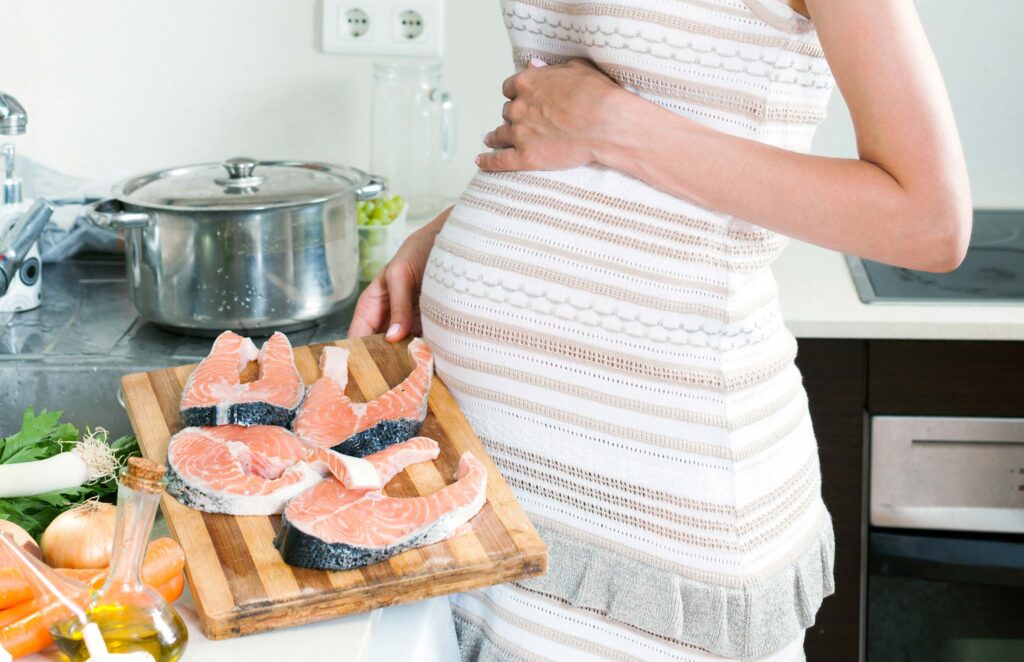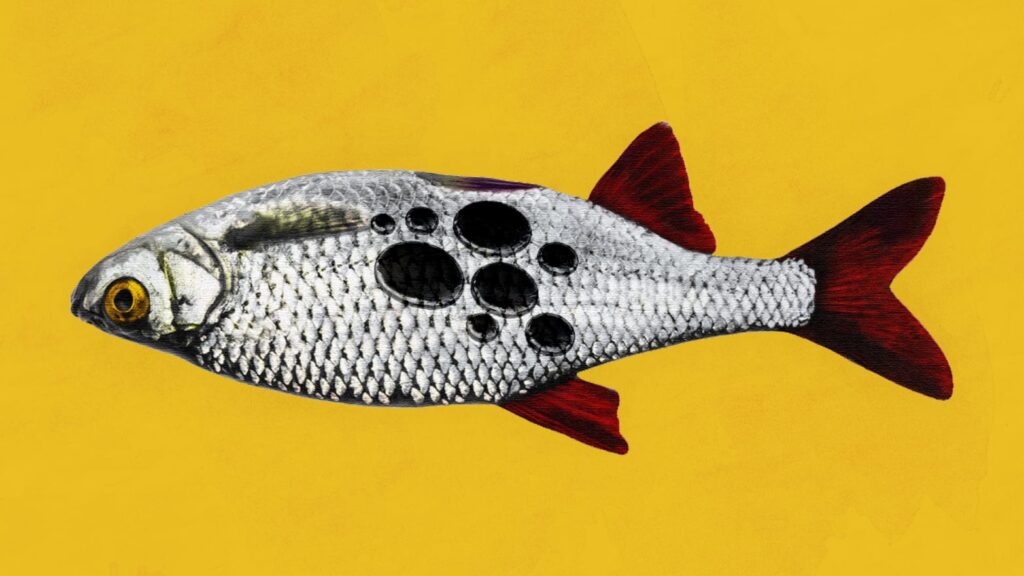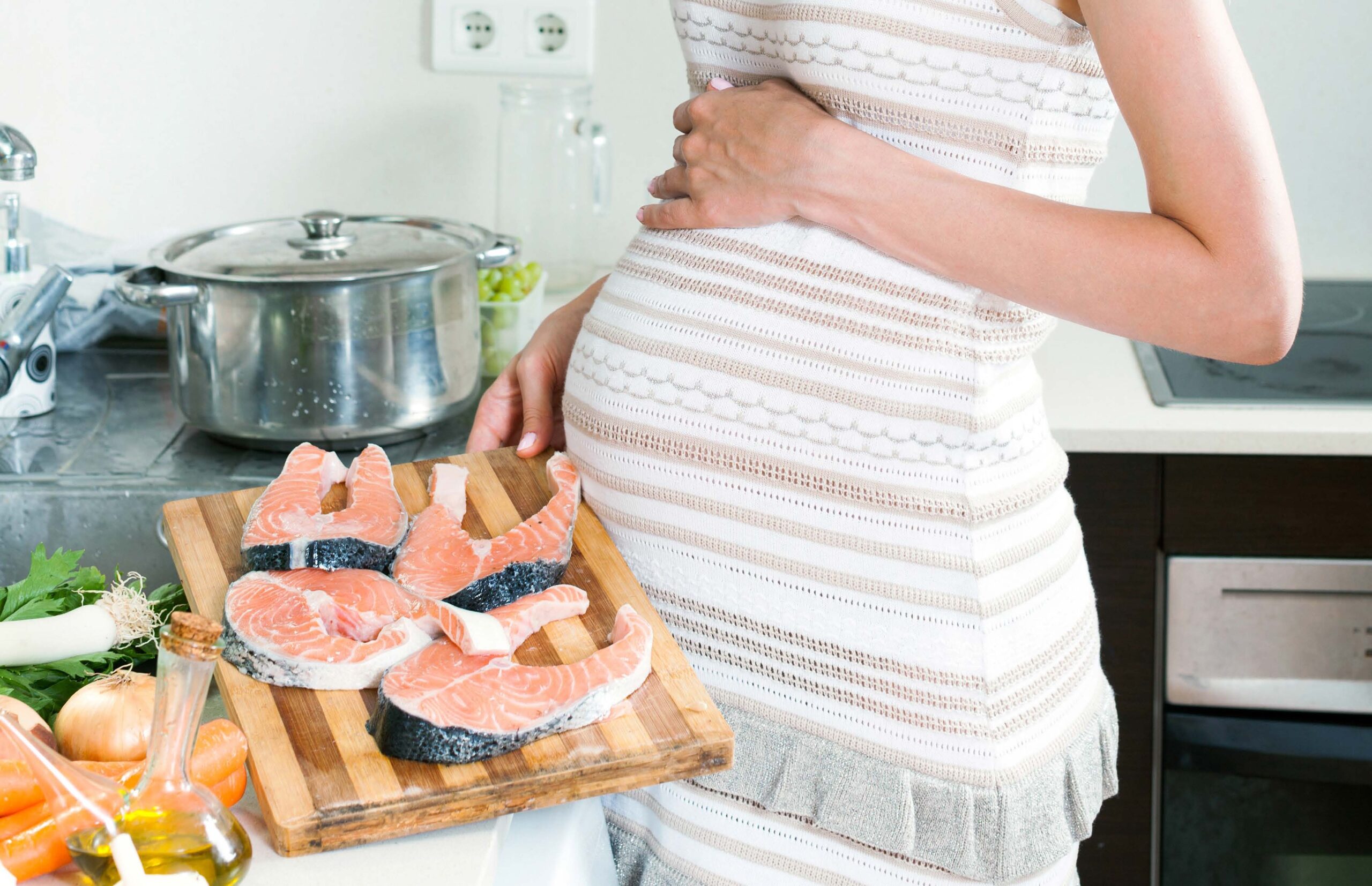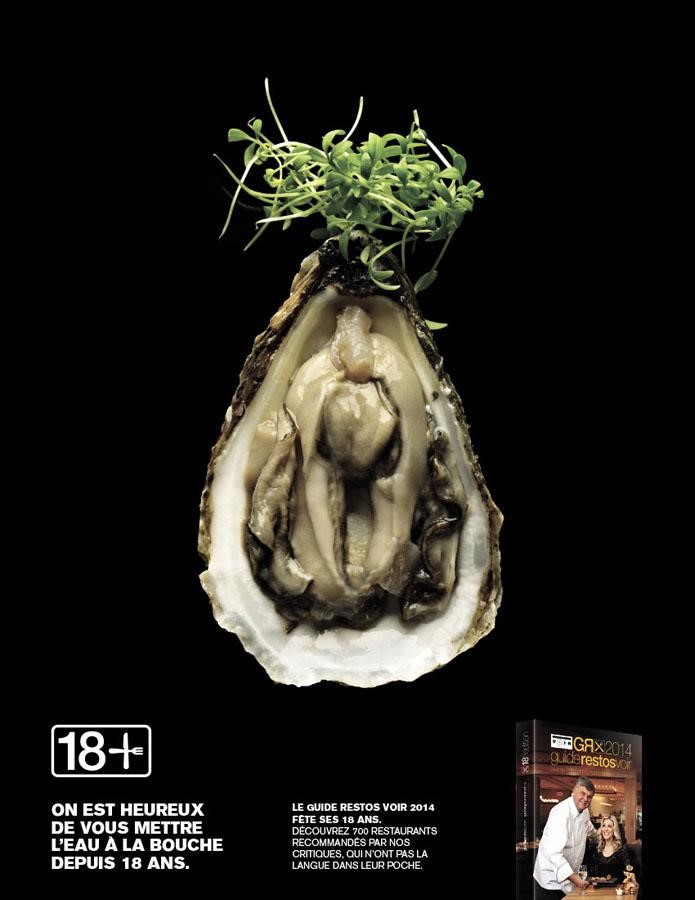
Introduction
During pregnancy, maintaining a balanced and nutritious diet is crucial for the health and development of both the mother and the baby. Seafood, in particular, offers a range of essential nutrients, such as omega-3 fatty acids, that play a vital role in the baby’s brain and eye development. However, it is important to be mindful of potential risks associated with seafood consumption, such as mercury content and foodborne illnesses. This article explores the pros and cons of including seafood in the pregnancy diet and provides guidance on making safe and healthy choices.
The Pros of Eating Seafood During Pregnancy:
Nutrient-Rich:
Seafood is a valuable source of high-quality protein, vitamins (such as vitamin D and B12), minerals (such as iodine and selenium), and omega-3 fatty acids. These nutrients are essential for the development of the baby’s brain, eyes, and overall growth.
Omega-3 Fatty Acids:
Fish like salmon, sardines, and trout are rich in omega-3 fatty acids, particularly docosahexaenoic acid (DHA) and eicosapentaenoic acid (EPA). These healthy fats are crucial for the baby’s brain and nervous system development.
Heart-Healthy Benefits:
The omega-3 fatty acids found in seafood have been associated with various cardiovascular benefits for pregnant women. They may help reduce the risk of heart disease and promote healthy blood pressure levels.
Variety of Options:
Seafood offers a wide range of flavors and textures, allowing pregnant women to enjoy diverse and nutritious meal options. From grilled salmon to sardine salads or anchovy-infused dressings, there are countless ways to incorporate seafood into a pregnancy diet.
The Cons and Considerations:

Mercury Content:
Certain fish, particularly larger predatory species like shark, swordfish, king mackerel, and tilefish, may contain higher levels of mercury. Mercury can be harmful to the baby’s developing nervous system. It is crucial to limit or avoid these fish during pregnancy and opt for low-mercury alternatives.
Foodborne Illnesses:
Seafood can carry bacteria, viruses, or parasites that can cause foodborne illnesses, such as salmonella or listeria. Pregnant women are more susceptible to these infections, which can pose risks to both the mother and the baby. It is essential to ensure that seafood is properly cooked to kill any potential pathogens.
Allergies and Sensitivities:
Seafood allergies are relatively common. Pregnant women with known allergies or sensitivities to seafood should avoid it to prevent any adverse reactions. It is important to be aware of individual allergies and consult with a healthcare provider for personalized advice.
Making Safe and Healthy Choices:
To make the most of the benefits while minimizing the risks, pregnant women should consider the following:
Choose Low-Mercury Options:
Opt for fish that are low in mercury, such as salmon, sardines, shrimp, and anchovies. These options provide important nutrients without the associated mercury risks.
Cook Seafood Thoroughly:
Ensure that seafood is cooked thoroughly to destroy any potential bacteria, viruses, or parasites. Avoid consuming raw or undercooked seafood during pregnancy.
Follow Dietary Guidelines:
Adhere to dietary guidelines regarding fish consumption during pregnancy. It is generally recommended to consume two to three servings of low-mercury fish per week, while balancing the diet with other sources of essential nutrients.
Consult with a Healthcare Provider:
Seek guidance from a healthcare provider or a registered dietitian for personalized advice based on specific health needs, allergies, or potential risks.
Conclusion
Incorporating seafood into a pregnancy diet can provide valuable nutrients, such as omega-3 fatty acids, that contribute to the healthy development of the baby. However, it is essential to choose fish low in mercury, cook seafood thoroughly, and be aware of potential allergies or sensitivities. By making informed choices and seeking professional advice, pregnant women can enjoy the benefits of seafood while ensuring a safe and healthy pregnancy.

Seafood Society by M&C Asia has earned its reputation by directly supplying the freshest seafood from the dock to the kitchen. We work closely with small fishmongers who carefully select the best catches from daily arrivals.
This close collaboration allows us to easily track the handling and origins of our seafood right from the source. Furthermore, our company actively maintains certification under the Chain of Custody (CoC) by the Marine Stewardship Council for both wild (MSC) and farmed (ASC) species.
Sources
Pregnancy and fish: What’s safe to eat? (2023, August 10). Mayo Clinic. https://www.mayoclinic.org/healthy-lifestyle/pregnancy-week-by-week/in-depth/pregnancy-and-fish/art-20044185#:~:text=While%20pregnant%20people%20can%20get,been%20shown%20to%20cause%20problems.
Horvath, R. (2022, October 4). What seafood can you eat while pregnant? NC Seafood Restaurant. https://www.ncseafood.com/blog/what-seafood-can-you-eat-while-pregnant/






 No products in the cart.
No products in the cart. 
